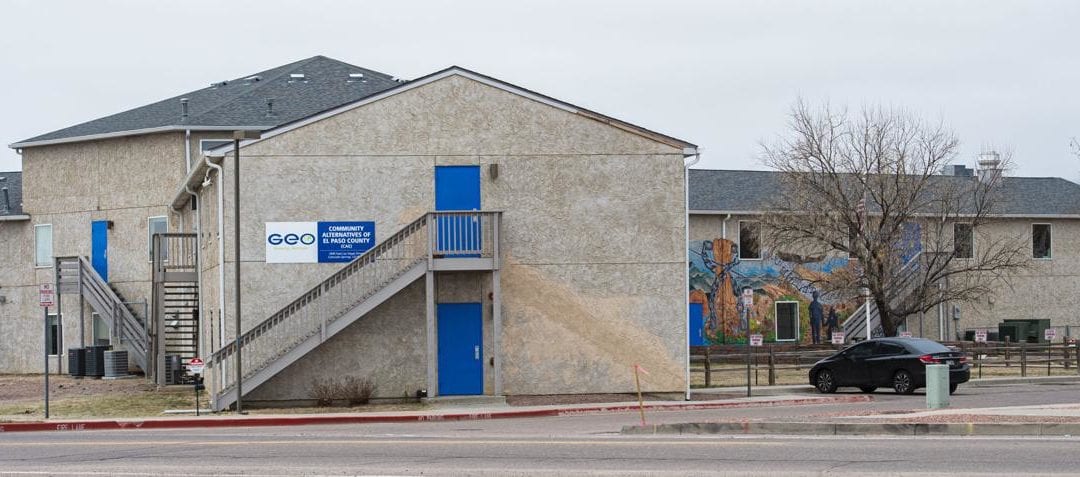Community Alternatives of El Paso, a for-profit Colorado Springs halfway house, has uprooted up to 65 residents and placed them in isolation in a separate facility amid what state health officials describe as a COVID-19 outbreak.
Two residents have tested positive and one is listed as “probable” for the disease, said El Paso County spokeswoman Natalie Sosa, relaying information from a county epidemiologist. One of the inmates who tested positive is no longer held at the facility, a halfway house representative said.
The residents’ transfer came Wednesday, in part at the urging of the Colorado Department of Public Health and Environment, said Brian Miller, a spokesman for Geo Group, Inc., the Boca Raton, Fla.-based company that operates the facility.
A resident at the facility said administrators were slow to react, stoking fears among people held there that they could have been exposed. On Monday, a CAE administrator, Sean Foster, addressed the residents saying that the administration had learned a resident had fallen ill the previous Thursday, the resident said.
The allegation was disputed by Miller, who said the inmate tested positive on Friday, and that isolation measures began immediately, including for the inmate’s cohort, or bunkmates. Miller said the other person with COVID-19 had tested positive for the disease about Aug. 29, several days after being released. Even so, that resident’s cohort was likewise isolated as a precaution, Miller said.
CAE houses approximately 200 residents, some transferred from the Colorado Department of Corrections to finish out their sentences, and others sentenced directly to the facility, often for low-level offenses.
The 65 residents who were moved from CAE, 2945 E. Las Vegas St., were taken to a nearby facility that previously housed the now-shuttered Cheyenne Mountain Re-entry Center. They were divided into smaller groups of five to seven to limit the potential for the virus to spread in the event they have contracted the disease, according to Miller.
Miller said it’s unclear how long the isolation at the neighboring facility will last, claiming that the inmate listed as “probable” by state health officials later tested negative for the novel coronavirus.
The resident who spoke to The Gazette said he did so in defiance of a posting on a bulletin board, which he interpreted as a warning to residents not to speak to the media. The resident asked to remain anonymous out of fear of retaliation.
Miller denied that any such warnings have been made to residents.
“There’s no message to residents not to talk to the media,” Miller said. “There is a sign posted in a staff office indicating that any media inquiries should be directed to a specific person. That’s a staff message. That’s not directed to any residents at all.”
Miller sent a photograph of the notice, which said: “We DO NOT speak to the media!” and listed the phone number for Miller.
The resident described a different warning and said CAE staff pulled it and other postings from the bulletin board after the newspaper’s inquiries.
If residents at CAE are barred from speaking with reporters under halfway house policy, it would violate the law, legal observers say.
“They can do that, but it’s not legal,” said Phil Dubois, a Colorado Springs attorney. The courts have consistently found that criminal convictions are not a basis to bar people from exercising their First Amendment rights, and private correctional facilities cannot implement illegal policies, such as revoking free speech, Dubois said.
This content was originally published here.

